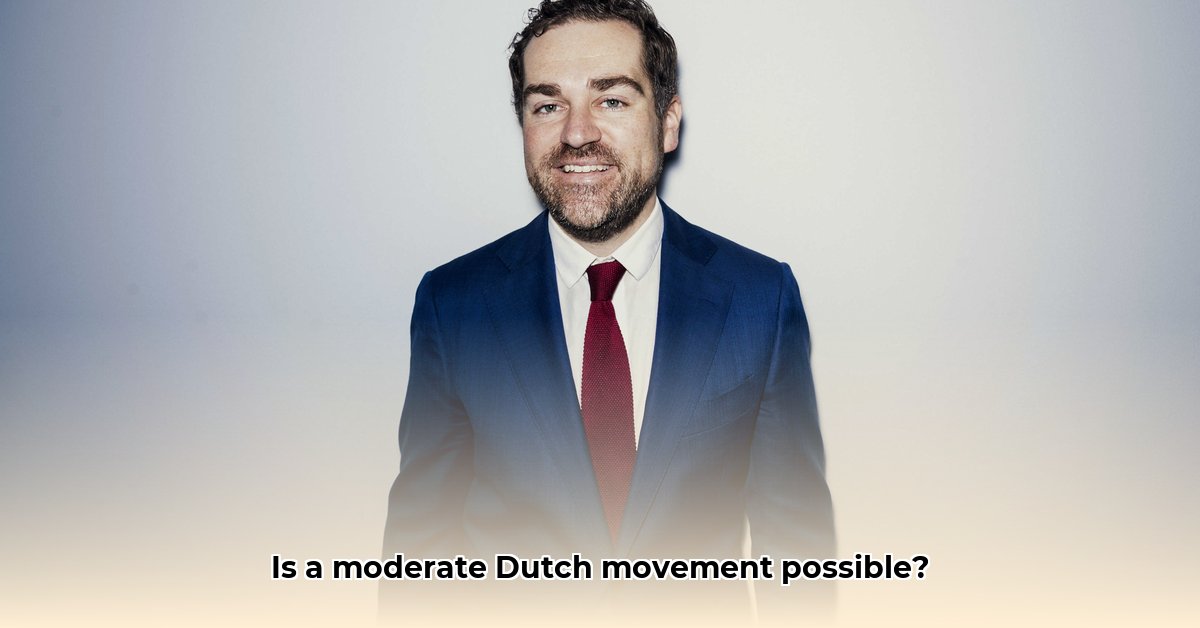
Voor Ons Nederland: A New Force in Dutch Politics?
Voor Ons Nederland (VON), a relatively new movement in Dutch politics, is attempting to bridge the divides plaguing the nation. Led by Klaas Dijkhoff, a former prominent member of the VVD (People's Party for Freedom and Democracy), VON aims to represent the "mild majority"—those citizens seeking pragmatic solutions over ideological battles. This analysis assesses VON's goals, strategies, challenges, and potential impact on the Dutch political landscape. Will VON truly reshape Dutch politics, or will it ultimately fade into the background?
VON's Goals and Strategy: Uniting the "Mild Majority"
VON's core goal is to foster collaboration and consensus-building within the Dutch political system. It seeks to counter the rise of populism by giving voice to the often-overlooked centrists. Their strategy focuses on dialogue, encouraging open conversations between politicians and citizens, and promoting compromise over confrontation. This approach, while seemingly laudable, presents a significant challenge: can consensus-building alone translate into tangible policy changes? The effectiveness of this approach depends on the willingness of established parties to engage meaningfully with VON's initiatives.
VON's Composition and Support: A Question of Independence?
VON's membership includes individuals from diverse political backgrounds. While this might suggest genuine non-partisanship, a significant number of initial supporters come from the VVD, raising questions about its true independence. Is VON a genuine attempt at transcending partisan divides, or is it a strategic initiative with a less than fully transparent VVD origin? This ambiguity could impact public trust and perception of its neutrality. Therefore, a transparent account of its funding sources and membership is crucial for establishing long-term credibility.
Challenges and Potential Risks: Navigating the Political Landscape
VON faces several significant challenges. Co-option by established parties poses a significant threat. Maintaining independence while seeking to influence policy requires meticulous strategy and strong internal cohesion. Funding limitations and the need for strong media visibility are further obstacles, crucial for achieving mass public engagement and political influence. Lastly, navigating internal conflicts and disagreements among members with diverse political backgrounds will prove essential for sustaining momentum and delivering on its promises. Can VON truly avoid being absorbed into the existing system?
VON's Policy Positions: A Focus on Process over Policy?
Currently, VON's approach prioritizes process over specific policy proposals. While fostering dialogue and building consensus are crucial steps to enhance political stability, this approach alone might be insufficient to generate tangible policy shifts. Without concrete recommendations and a clear platform, it remains difficult to assess VON's potential impact on future legislation. Concrete policy proposals, even if initially modest, would provide a clearer measure of VON’s ultimate impact.
Conclusion: A Movement with Uncertain Prospects
Voor Ons Nederland's impact on Dutch politics remains uncertain. While its aim to bridge political divides is commendable, its success is contingent on several factors: securing stable funding, maintaining internal unity, achieving consistent media visibility and building broad public support. The effectiveness of its consensus-building strategy and its ability to translate this consensus into viable policy changes are paramount. Further research into the long-term sustainability of its funding model, the evolution of its membership, and the concrete policy proposals it might eventually adopt, are areas requiring further investigation. Only time will tell if VON can truly reshape Dutch politics.
Key Takeaways:
- VON aims to unite the Dutch "mild majority" through consensus-building, but faces challenges establishing widespread influence.
- Klaas Dijkhoff's background lends credibility, but also raises concerns about VON’s actual independence.
- The movement's success depends critically on securing funding, maintaining internal unity, and avoiding co-option by more established parties.